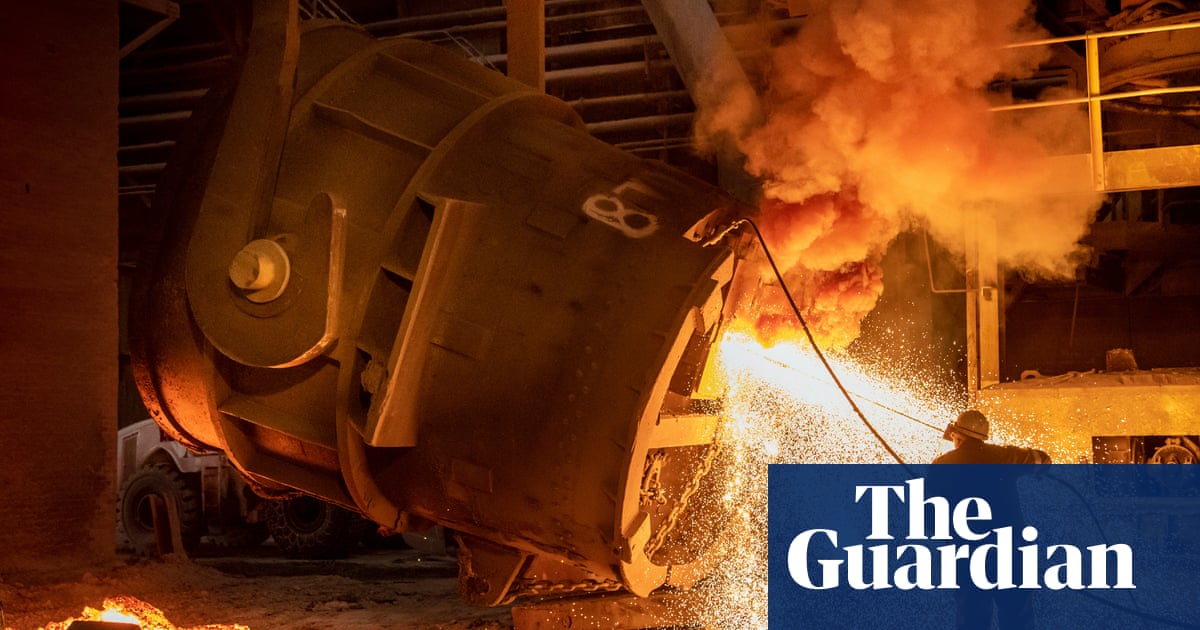The UK’s trade secretary,Jonathan Reynolds, will meet his US counterpart next week to thrash out a timeline for exempting the UK from US steel and aluminium tariffs after Donald Trump announced he would double them.
British officials are seeking clarity on the implications of Trump’s announcement on Friday night that heplanned to double the tariffsfrom 25% to 50% from Wedneday 4 June, piling further pressure on global steel trade.
Reynolds is expected to meet his US counterpart, Jamieson Greer , at the OECD meeting in Paris next week. He will seek to agree a timeline for implementing the deal agreed to lower steel, aluminium, auto and other product tariffs.
A UK government spokesperson said: “The UK was the first country to secure a trade deal with the US earlier this month and we remain committed to protecting British business and jobs across key sectors, including steel.”
“We are engaging with the US on the implications of the latest tariff announcement and to provide clarity for industry.”
The Guardian reported thatBritish officials were intensifying trade talks with the US and hope to see the deal implemented within weeks.
A government source said: “Some countries are viewing the court ruling as an indication that they were right not to negotiate over tariffs. We’re taking the opposite view, and trying to get this deal implemented as soon as possible.”
Trump and Keir Starmerannounced a US-UK trade deal earlier this monthunder which on British steel and aluminium will be reduced to zero, and tariffs on up to 100,000 British cars a year will be reduced from 25% to 10%.
The deal did not cover Trump’s blanket 10% tariffs on all foreign imports, which afederal court overturned last week, arguing that the US president had overstepped his powers. Anappeals court paused the rulingand said Trump’s tariffs could continue while it examines the arguments.
The European Commission said on Saturday that it “strongly” regretted Trump’s decision to double steel and aluminium tariffs, and warned that the EU was prepared to retaliate.
“This decision adds further uncertainty to the global economy and increases costs for consumers and businesses on both sides of the Atlantic,” a spokesperson for the commission said, adding that “the tariff increase also undermines ongoing efforts to reach a negotiated solution”.
“The EU is prepared to impose countermeasures, including in response to the latest U.S. tariff increase.”
“The European Commission is currently finalising consultations on expanded countermeasures. If no mutually acceptable solution is reached, both existing and additional EU measures will automatically take effect on 14 July – or earlier, if circumstances require.”
